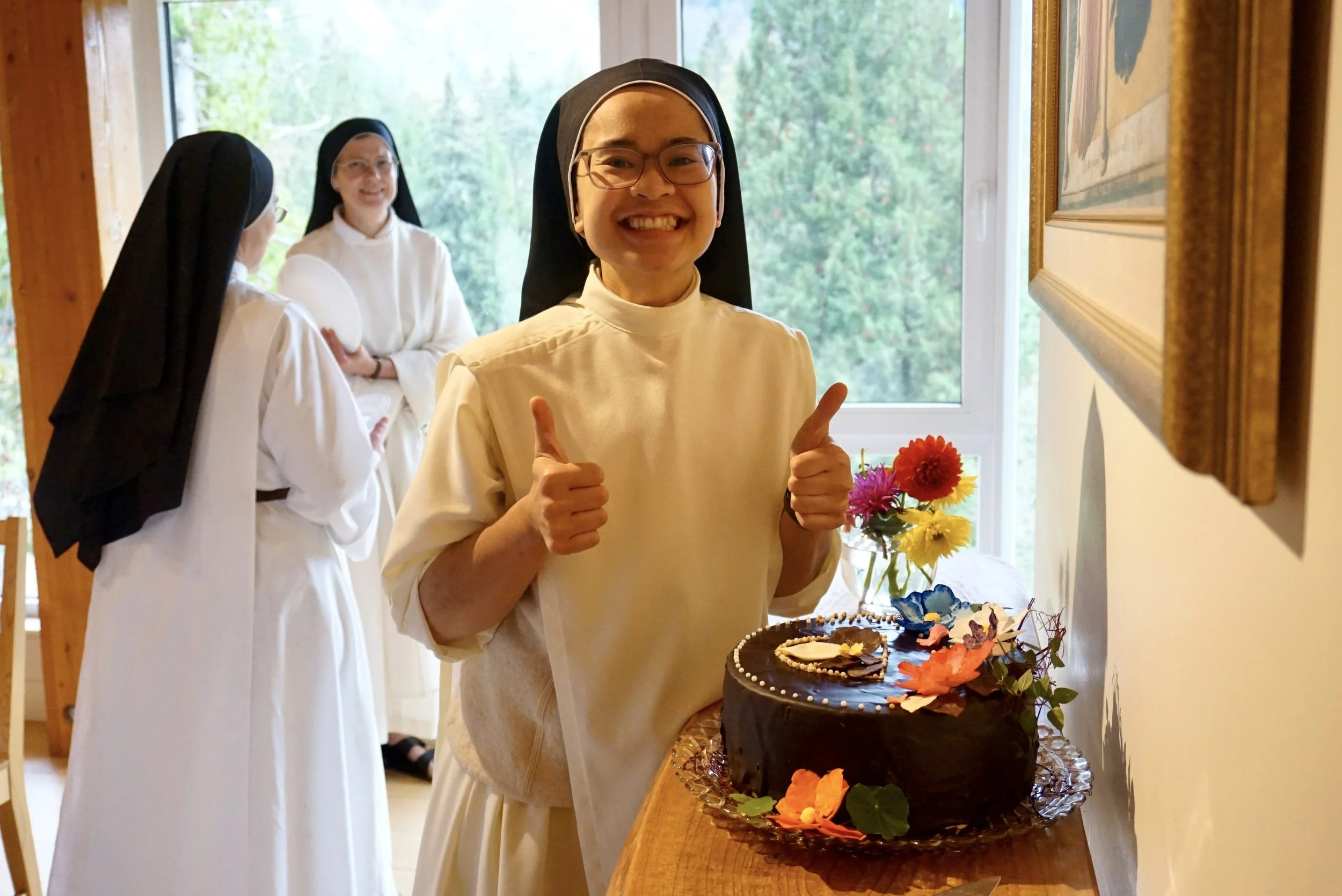A happy and blessed beginning of Advent to you all! This season marks a very special anniversary for our community as we begin the 25th Jubilee Year of our foundation. On November 27, 1999, our founding sisters first gathered together in Rosemary Heights, Surrey to sing the Vespers of the First Sunday of Advent together. We give thanks for God’s providence and goodness as He led us from Surrey to Langley, and eventually to the snow-capped peaks of the Upper Squamish Valley.
As we prepare to celebrate with joy Christ’s coming among us at Christmas, we give thanks for all our friends near and far who have supported our foundation. In our new winter newsletter, we reflect on the gift of these past decades, and share the news of the past few months. Right now, you can read the digital edition below in either English or French; we will mail the paper editions to subscribers once the postal strike is concluded.
On a similar note, we are currently unable to fulfill online orders or receive donation cheques in the mail until the postal service resumes. However, our soap and other handmade items are available in our monastery’s physical gift shop. Secure donations can still be made online through our website. We are deeply grateful for all your support, and pray for our benefactors every day.
Finally, it is our great joy to announce the election of our new prioress, Sr. Marie-Bénédicte Gutierrez! In Dominican tradition, we hold prioral elections every three years. Our Constitutions describe the prioress’s role as being “the faithful servant of the monastery,” responsible particularly for cultivating unity and charity, encouraging the contemplative life of the nuns, fostering regular observance, and caring for the sick. Please pray for Sr. Marie-Bénédicte as she begins these years of service in our community.









